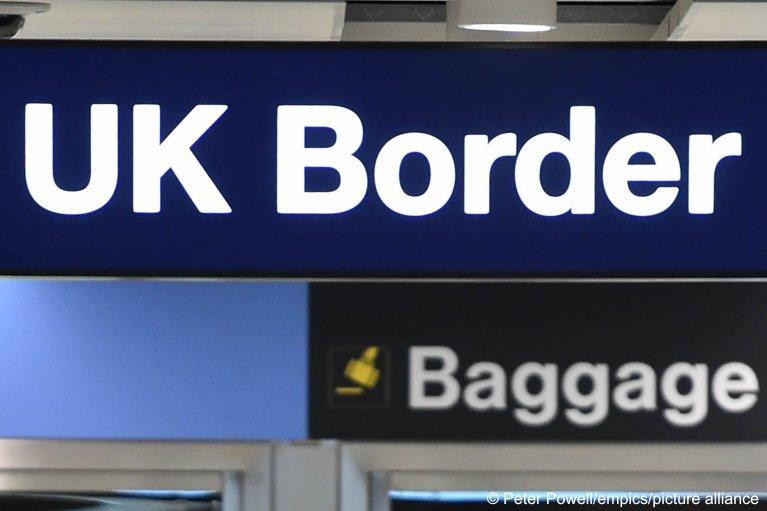The United Kingdom has expanded its Temporary Shortage Occupation List (TSOL) to include 82 distinct professions, a move aimed at addressing critical labor shortages across various sectors. This update, detailed in a recent InfoMigrants report, reflects the government’s ongoing efforts to streamline immigration routes for skilled workers amid evolving economic demands. As businesses grapple with gaps in their workforce, the revised list paves the way for targeted recruitment from abroad, offering potential relief to industries ranging from healthcare to engineering.
UK Expands Temporary Shortage List to Address Critical Workforce Gaps
The UK government has significantly widened its Temporary Shortage List, now encompassing 82 distinct occupations across multiple sectors. This update aims to address critical labor shortages exacerbated by post-pandemic economic shifts and Brexit-related workforce challenges. Key sectors benefiting from this revision include healthcare, engineering, and digital technology, underlining the government’s commitment to sustaining essential services and bolstering innovation. Employers can now recruit internationally for roles previously restricted, helping to fill urgent vacancies more efficiently.
The expanded list introduces diverse job categories, from nurses and civil engineers to IT business analysts and skilled trades such as electricians and plumbers. The aim is to offer greater flexibility within the immigration system, ensuring that the UK labor market remains competitive and resilient. Below is a snapshot of some of the newly added roles:
| Sector | Notable Occupations |
|---|---|
| Healthcare | Registered Nurses, Paramedics |
| Engineering | Civil Engineers, Mechanical Engineers |
| Technology | Cyber Security Specialists, IT Business Analysts |
| Skilled Trades | Electricians, Plumbers, Bricklayers |
Employers are encouraged to review the updated list regularly, as it remains a dynamic tool to reflect evolving workforce demands. This policy adjustment highlights the UK’s strategic approach to mitigating skills shortages while supporting economic growth in a post-Brexit environment.
Key Occupations in Demand and What This Means for Migrant Workers
The UK’s Temporary Shortage List now highlights 82 specific occupations urgently needed across various sectors, reflecting the country’s evolving economic landscape and labor demands. Key areas of opportunity span healthcare, engineering, IT, and skilled trades, offering migrant workers targeted pathways to entry and residence. Notably, professions such as medical radiographers, civil engineers, and graphic designers have been added, signaling a broader recognition of skill shortages beyond traditional roles.
This expansion presents both challenges and prospects for migrant workers. While the widened list creates fresh avenues for employment, it also demands a clear understanding of qualifications, visa requirements, and sector-specific regulations. Below is a snapshot of some highlighted occupations and their potential impact:
| Occupation | Sector | Opportunity Level |
|---|---|---|
| Registered Nurse (Adult) | Healthcare | High |
| Civil Engineer | Engineering | Medium |
| IT Business Analyst | Information Technology | High |
| Electrician | Skilled Trades | Medium |
Prospective migrants should carefully evaluate their skill sets against this list and keep abreast of immigration policy changes. Access to updated resources and guidance remains crucial to maximize the benefits of these new employment corridors in the UK labor market.
Expert Recommendations for Navigating the UK Temporary Shortage List Application Process
Applicants should begin by thoroughly reviewing the updated list to ensure their occupation falls within the current scope of the Temporary Shortage List. Double-checking job codes and exact role definitions is crucial, as discrepancies can lead to delays or outright refusals. Experts advise gathering comprehensive evidence of skills and experience tailored to the UK’s specific sector demands. This preparation reduces ambiguity and demonstrates alignment with the shortage’s criteria.
Choosing the right supporting documents can be simplified by following these expert tips:
- Valid Professional Qualifications: Certificates accredited by UK-recognized institutions or equivalently accepted bodies
- Detailed Work References: Letters on official letterhead specifying exact responsibilities related to shortage occupations
- Updated Job Descriptions: Clearly matching your experience with shortage occupation requirements
- Accredited English Language Test Results: Where applicable, ensure that tests meet UKVI standards
| Common Application Issue | Expert Solution |
|---|---|
| Mismatch of job title and SOC code | Cross-reference closely with the Home Office’s approved SOC codes |
| Insufficient documentation of skilled experience | Compile official references from employers outlining duties and duration |
| English language requirement gaps | Undertake a recognized test before application submission |
Here’s a concise summary of expert recommendations for applicants aiming to apply under the UK’s Temporary Shortage List:
- Review the Latest Temporary Shortage List Thoroughly
- Ensure your occupation and corresponding SOC code exactly match those on the current list to avoid delays or refusals.
- Gather Comprehensive Evidence of Skills and Experience
- Tailor documentation to show clear alignment with sector-specific shortage criteria.
- Select Proper Supporting Documents:
- Valid professional qualifications recognized by UK bodies.
- Detailed work references on official letterhead specifying your job responsibilities related to shortage occupations.
- Updated job descriptions that clearly correlate with shortage occupation requirements.
- Accredited English language test results that meet UKVI standards (where applicable).
- Address Common Application Issues with Expert Solutions:
| Issue | Recommended Solution |
|---|---|
| Mismatch of job title and SOC code | Cross-reference with Home Office approved SOC codes |
| Insufficient documentation of experience | Obtain official employer references outlining duties and durations |
| English language requirement gaps | Complete a recognized English test before applying |
Following these steps carefully helps reduce ambiguity, demonstrates compliance with criteria, and increases the chances of a successful application.
Wrapping Up
As the UK continues to navigate its post-Brexit immigration landscape, the addition of 82 occupations to the Temporary Shortage Occupation List underscores the government’s efforts to address critical labor gaps across various sectors. This move aims to streamline the recruitment of skilled workers, ensuring that industries facing shortages can maintain productivity and growth. For prospective migrants and employers alike, staying informed about these updates is essential as the UK adapts its workforce policies to changing economic needs. InfoMigrants will continue to monitor these developments and provide timely, accurate information on immigration and labor market changes.




